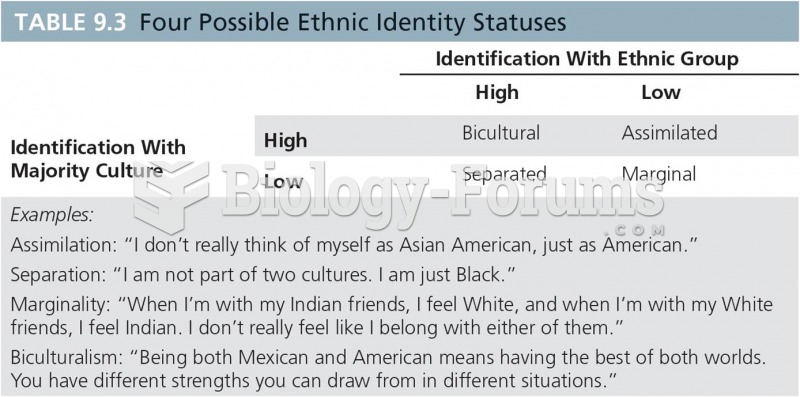Answer to Question 1
True
Answer to Question 2
Religious groups vary in their organizational structure. Sociologists have developed typologies or ideal types of religious organizations to enable them to study a wide variety of religious groups. The most common categorization sets forth four types: ecclesia, church, sect, and cult. An ecclesia is a religious organization that is so integrated into the dominant culture that is claims as its membership all members of a society. Membership in the ecclesia occurs as a result of being born into the society, rather than by any conscious decision on the part of the individual members.
To help explain the different types of religious organizations found in societies, Max Weber developed a typology that distinguishes between the characteristics of churches and sects. A church is a large, bureaucratically organized religious organization that tends to seek accommodation with the larger society in order to maintain some degree of control over it. Church membership is largely based on birth; typically, children of church members are baptized as infants and become lifelong members of the church. Churches have a bureaucratic structure and leadership is hierarchically arranged. Usually, the clergy have many years of formal education. Churches have very restrained services that appeal to the intellect rather than the emotions. Midway between the church and the sect is the denominationa large organized religion characterized by accommodation to society but frequently lacking in ability or intention to dominate society. Denominations have a trained ministry and, although involvement by lay members is encouraged more than in the church, their participation is usually limited to particular activities such as readings or prayers. Denominations tend to be more tolerant and are less likely than churches to expel or excommunicate members. This form of organization is most likely to thrive in societies characterized by religious pluralisma situation in which many religious groups exist because they have a special appeal to specific segments of the population. Perhaps because of its diversity, the United States has more denominations than any other nation. A sect is a relatively small religious group that has broken away from another religious organization to renew what it views as the original version of the faith. Unlike churches, sects offer members a more personal religion, and an intimate relationship with a supreme being, depicted as taking an active interest in the individual's everyday life. A cult is a loosely organized religious group with practices and teachings outside the dominant culture and religious traditions of a society. Cult leadership is based on charismatic characteristics of the individual leader, including an unusual ability to communicate and to form attachments with other members.







